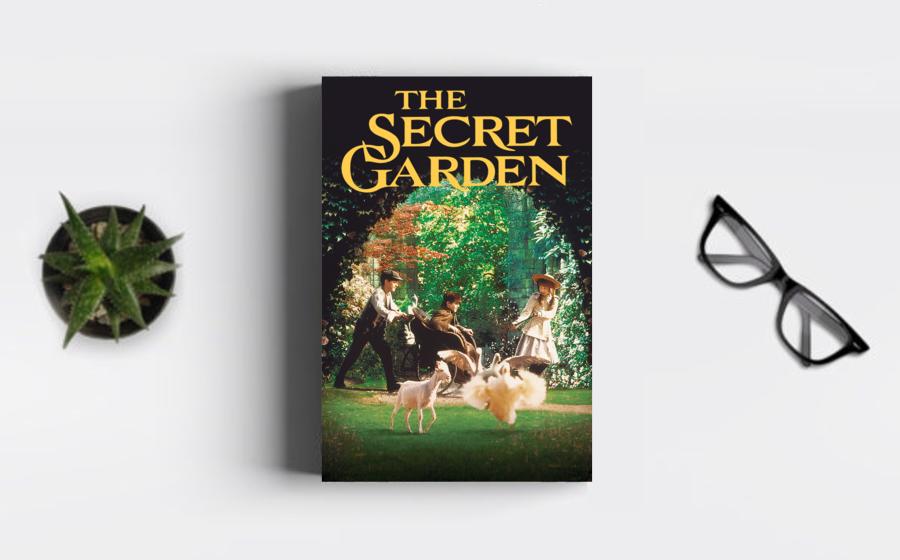"The Secret Garden" is a perennial gem in the
realm of children's literature, a magical tapestry of
growth, friendship, and the transformative power of
nature. First published in 1911, this enchanting novel
has captivated generations with its timeless charm and
enduring themes. In this review, we embark on a journey
through the hidden corridors of Misselthwaite Manor to
unravel why "The Secret Garden" remains an evergreen
classic, cherished by both young readers and the young
at heart.
At the heart of "The Secret
Garden" lies the theme of rediscovery, of hidden spaces,
dormant potential, and the transformative magic that can
bloom when one unlocks the door to the unknown. Mary
Lennox, the novel's protagonist, arrives at Misselthwaite Manor, a desolate estate echoing with
untold secrets and mysteries. As Mary ventures into the
neglected garden, hidden behind ivy-covered walls, she
stumbles upon a world waiting to be reborn.
The
garden becomes a metaphor for the resilience of nature
and the human spirit. Its initial state of neglect
reflects the emotional desolation of the characters, but
as Mary, along with her newfound friends Dickon and
Colin, tends to the garden, both the landscape and their
lives undergo a vibrant transformation. The unfolding
magic mirrors the transformative potential inherent in
neglected aspects of ourselves and the world around us.
"The Secret Garden" unfolds as a tale of character
growth, where the once self-centered and spoiled Mary,
the frail Colin, and the nature-savvy Dickon undergo
profound transformations. As they nurture the garden,
they concurrently cultivate the seeds of resilience,
friendship, and self-discovery within themselves.
Mary's journey from a lonely, neglected child to a
spirited, compassionate friend exemplifies the novel's
overarching message: that growth and renewal are
attainable through connection and care. The friendships
forged within the walls of the secret garden serve as a
testament to the transformative power of companionship,
love, and shared endeavors.
Colin's arc is
particularly poignant. Initially confined to his bed due
to his supposed frailty, he blossoms under the influence
of the garden's magic. The narrative challenges
preconceived notions about disability and the potential
for growth, emphasizing that every individual,
regardless of perceived limitations, possesses an inner
strength waiting to be unearthed.
Burnett's portrayal of nature as a healing force
permeates every aspect of "The Secret Garden." The
garden itself becomes a sanctuary of rejuvenation, where
the characters find solace, joy, and a sense of purpose.
The novel beautifully captures the therapeutic impact of
spending time outdoors, fostering a connection between
the characters and the natural world.
The
author's vivid descriptions of flora and fauna evoke a
sensory experience, inviting readers to immerse
themselves in the sights, sounds, and scents of the
garden. This immersion not only enhances the narrative's
enchantment but also serves as a subtle invitation for
readers to appreciate the wonders of the natural world
in their own lives.
"The Secret Garden" is a
rich tapestry of symbolism and allegory, inviting
readers to explore layers of meaning beneath its surface
narrative. The locked garden becomes a metaphor for the
hidden potential within individuals and the
transformative power of positive influences.
The
act of unlocking the garden gate symbolizes breaking
down emotional barriers, embracing change, and allowing
personal growth to flourish. The rejuvenation of the
garden parallels the characters' emotional and spiritual
renewal, reinforcing the novel's themes of resilience,
hope, and the interconnectedness of living things.
At its core, "The Secret Garden"
weaves a narrative tapestry that explores themes of
family, belonging, and the transformative nature of
love. Mary, Colin, and Dickon form an unconventional but
deeply meaningful family unit within the confines of the
garden. Their bonds transcend traditional definitions of
kinship, emphasizing the idea that family is not solely
defined by blood relations but by shared experiences and
genuine connections.
The novel's exploration of
belonging extends beyond human relationships to
encompass the characters' connection to the natural
world. The garden itself becomes a familial space,
nurturing a sense of belonging and interconnectedness
among its caretakers. This theme resonates with readers
of all ages, fostering an appreciation for the diverse
forms that family and belonging can take.
Frances Hodgson Burnett's prose in "The
Secret Garden" is a testament to her literary
craftsmanship. Her evocative and descriptive language
paints a vivid picture of the English moor and the
enchanting garden, transporting readers to the heart of
the narrative. The simplicity and elegance of Burnett's
writing contribute to the novel's accessibility for
younger readers while maintaining a timeless appeal that
captivates readers of all ages.
The author's
ability to infuse the narrative with emotional depth
without overwhelming young readers is a hallmark of her
skill. The novel's pacing, dialogue, and vivid imagery
collectively create an immersive reading experience,
ensuring that "The Secret Garden" remains an enchanting
journey for each generation that discovers its pages.
"The Secret Garden" has transcended the
confines of literature, leaving an indelible mark on
popular culture through numerous adaptations in film,
television, and stage productions. These adaptations
further illuminate the enduring popularity and universal
appeal of the novel's themes.
Each new iteration
of "The Secret Garden" introduces the enchanting story
to a fresh audience, ensuring that the magic of the
hidden garden continues to inspire and resonate across
generations. The enduring legacy of the novel attests to
its ability to captivate the hearts and imaginations of
readers young and old.
"The Secret Garden" stands as a timeless children's classic, a literary blossom that never fades. Through its themes of rediscovery, character growth, the healing power of nature, and the enduring significance of family and belonging, the novel continues to weave its enchanting spell on readers of all ages.






